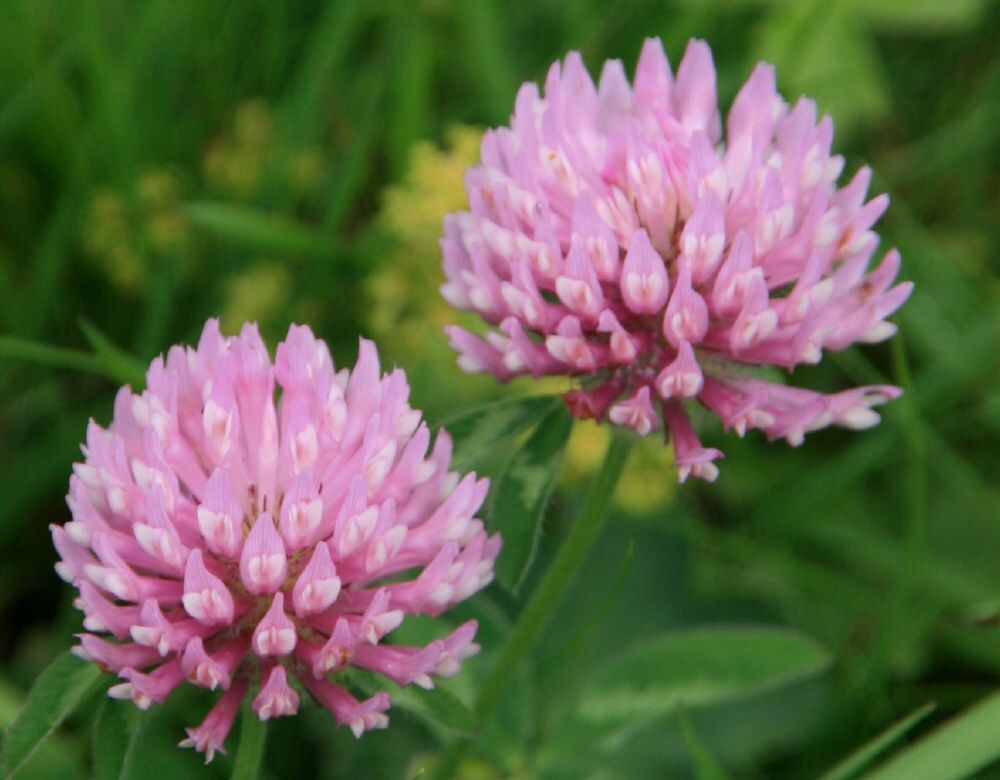The Ultimate Guide to Crimson Clover Companion Planting
Crimson Clover Companion Plant: An
Are you looking for a natural and organic way to improve your garden's soil fertility, attract beneficial insects and pollinators, and suppress weed growth? Look no further than the crimson clover companion plant. This beautiful legume is not only a great cover crop but also an excellent addition to vegetable gardens.
In this guide, we will discuss everything you need to know about crimson clover companion planting, including how to grow it, its benefits, and how to use it in your garden.
What is Crimson Clover?
Crimson clover (Trifolium incarnatum) is an annual legume that is native to the Mediterranean region. It belongs to the same family as peas and beans and is widely used as a forage crop, cover crop, and green manure. It is called "crimson" due to its bright red flowers that bloom from late winter to early summer.
Benefits of Crimson Clover Companion Planting
There are several benefits of planting crimson clover as a companion plant in your garden:
Nitrogen Fixation - Crimson clover is known for its ability to fix nitrogen from the air into the soil, making it available to other plants. This makes it an excellent natural fertilizer.
Weed Suppression - The dense foliage of crimson clover can help suppress weed growth in your garden.
Attracts Pollinators - The bright red flowers of the crimson clover attract bees, butterflies, and other beneficial insects to your garden.
Soil Improvement - Crimson clover's deep roots help break up compacted soil, improve water infiltration, and increase soil organic matter.
How to Grow Crimson Clover Companion Plant
Growing crimson clover is relatively easy. Here's how to do it:
Soil Preparation - Crimson clover grows best in well-drained soil with a pH level of 6.0-7.5. Add compost or other organic matter to improve soil fertility.
Planting - Plant crimson clover seeds in the fall for best results. Sow the seeds at a rate of 20-30 pounds per acre. If planting in your vegetable garden, sow the seeds thinly and cover them with a light layer of soil.
Watering - Keep the soil moist until the seeds germinate. After that, water as needed.
Maintenance - Crimson clover requires little maintenance once established. However, you should avoid mowing or tilling the plants before they have a chance to bloom.
Using Crimson Clover in Your Garden
There are several ways to use crimson clover in your garden:
Cover Crop - Plant crimson clover in the fall as a cover crop to protect your soil during the winter months. In the spring, till the plants into the soil to add organic matter and nitrogen.
Companion Plant - Plant crimson clover between rows of vegetables as a companion plant to improve soil fertility and attract beneficial insects.
Green Manure - Till crimson clover into the soil before it blooms to add nitrogen and organic matter to your soil.
Crimson Clover Companion Planting Tips
Here are some tips for successful crimson clover companion planting:
Plant crimson clover in the fall for best results.
Sow the seeds thinly to avoid overcrowding.
Avoid mowing or tilling the plants before they have a chance to bloom.
Be patient – it may take several weeks for the seeds to germinate.
Don't let the plants go to seed unless you want them to reseed themselves.
Crimson Clover Companion Plant FAQs
Q1: What is the best time to plant crimson clover?
A1: The best time to plant crimson clover is in the fall for best results.
Q2: How much seed do I need to plant per acre?
A2: Sow the seeds at a rate of 20-30 pounds per acre.
Q3: Can I use crimson clover as a green manure?
A3: Yes, till crimson clover into the soil before it blooms to add nitrogen and organic matter to your soil.
Q4: Can I plant crimson clover in my vegetable garden?
A4: Yes, you can plant crimson clover between rows of vegetables as a companion plant to improve soil fertility and attract beneficial insects.
Q5: How often should I water my crimson clover?
A5: Keep the soil moist until the seeds germinate. After that, water as needed.
Crimson clover companion planting is an excellent way to improve your garden's soil fertility, suppress weed growth, and attract beneficial insects and pollinators. By following the tips and guidelines outlined in this guide, you can successfully grow crimson clover in your garden and enjoy its many benefits.










Post a Comment for "The Ultimate Guide to Crimson Clover Companion Planting"